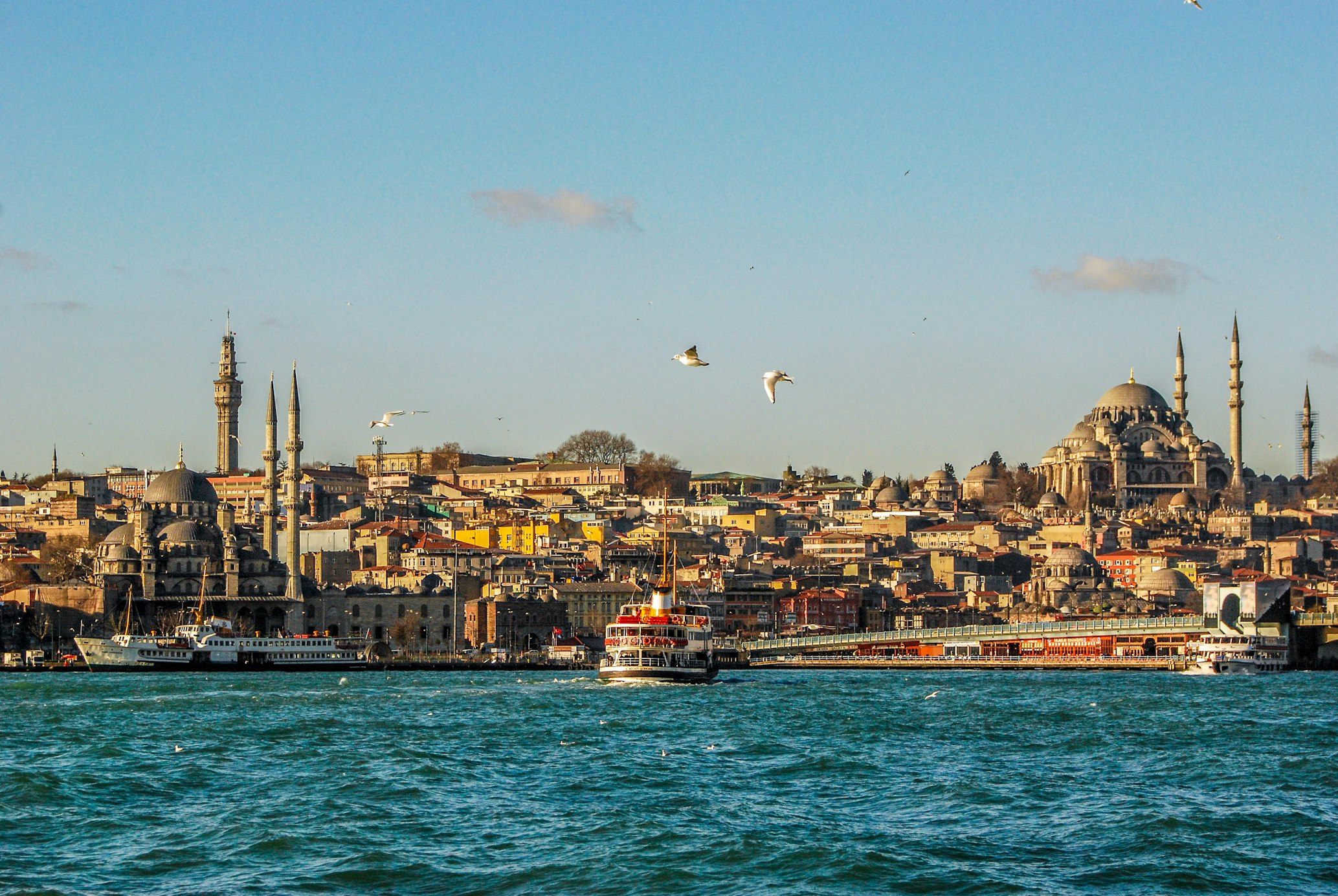Istanbul

Istanbul, straddling two continents across the Bosphorus Strait, is a city that epitomizes the meeting point of East and West, both geographically and culturally. With its rich history that stretches back over 2,500 years, Istanbul has served as the capital of the Roman, Byzantine, and Ottoman empires, each leaving an indelible mark on the city’s architecture, cuisine, and cultural fabric. This unique blend of influences makes Istanbul a fascinating destination for travelers seeking to explore the depths of history, vibrant street life, and the confluence of cultures.
The city’s architecture is a testament to its layered history, with majestic mosques, churches, synagogues, and palaces dotting the skyline. The Hagia Sophia, with its stunning dome and Christian mosaics alongside Islamic calligraphy, symbolizes the city’s diverse heritage. Nearby, the Blue Mosque (Sultanahmet Mosque) impresses with its six minarets and exquisite interior tile work. The Topkapi Palace, once the seat of the Ottoman Empire, offers a glimpse into the opulent lives of sultans, with its lavish courtyards, harem, and treasury that houses the Prophet Muhammad’s cloak and sword.
The Grand Bazaar and the Spice Market are bustling centers of trade that have operated for centuries, offering everything from spices and sweets to jewelry and ceramics. These markets are not just places for commerce but are integral to experiencing Istanbul’s dynamic street life and the warmth of Turkish hospitality.
Istanbul’s strategic location on the Bosphorus has been pivotal in its history and development. A cruise on the Bosphorus provides breathtaking views of the city’s European and Asian sides, with palaces, fortresses, and seaside mansions lining the shores. The Bosphorus Bridge and the Marmaray tunnel, connecting the two continents, are modern feats of engineering that underscore the city’s role as a bridge between cultures.
The culinary landscape of Istanbul is as diverse as its heritage, reflecting a mixture of Balkan, Central Asian, Middle Eastern, and Mediterranean influences. Dishes such as kebabs, meze, baklava, and Turkish delight, along with the ubiquitous Turkish tea and coffee, are integral to the city’s social and culinary traditions. Istanbul’s food scene ranges from street vendors selling simit (sesame-encrusted bread rings) and balık-ekmek (fish sandwiches) to upscale restaurants offering innovative takes on traditional Turkish cuisine.
Cultural expressions in Istanbul are vibrant and varied, with numerous festivals, art galleries, and music venues throughout the city. The Istanbul Biennial, Istanbul Film Festival, and Istanbul Jazz Festival are just a few events that showcase the city’s commitment to cultural diversity and contemporary arts.
Istanbul’s neighborhoods each have their own character, from the historical peninsula of Sultanahmet and the fashion-forward district of Nişantaşı to the bohemian streets of Beyoğlu and the Asian-side charm of Kadıköy. Exploring these areas reveals the city’s multiple identities, from ancient to modern, traditional to avant-garde.
In conclusion, Istanbul captivates visitors with its ability to embrace contradictions—where the past coexists with the present, tradition with modernity, and East with West. It’s a city where every corner has a story to tell, offering an endless array of sights, sounds, and flavors. Istanbul invites travelers to delve into its rich tapestry, promising an experience that is as diverse and enchanting as the city itself.